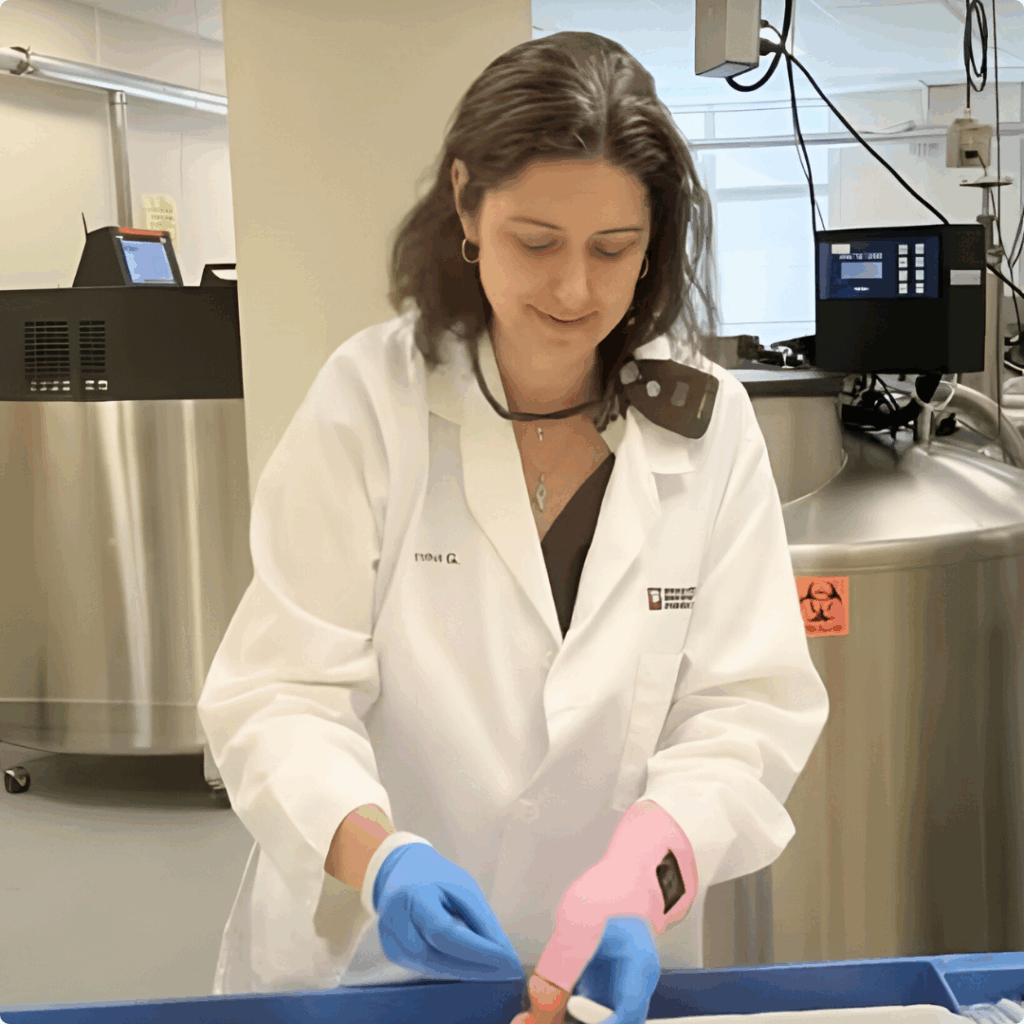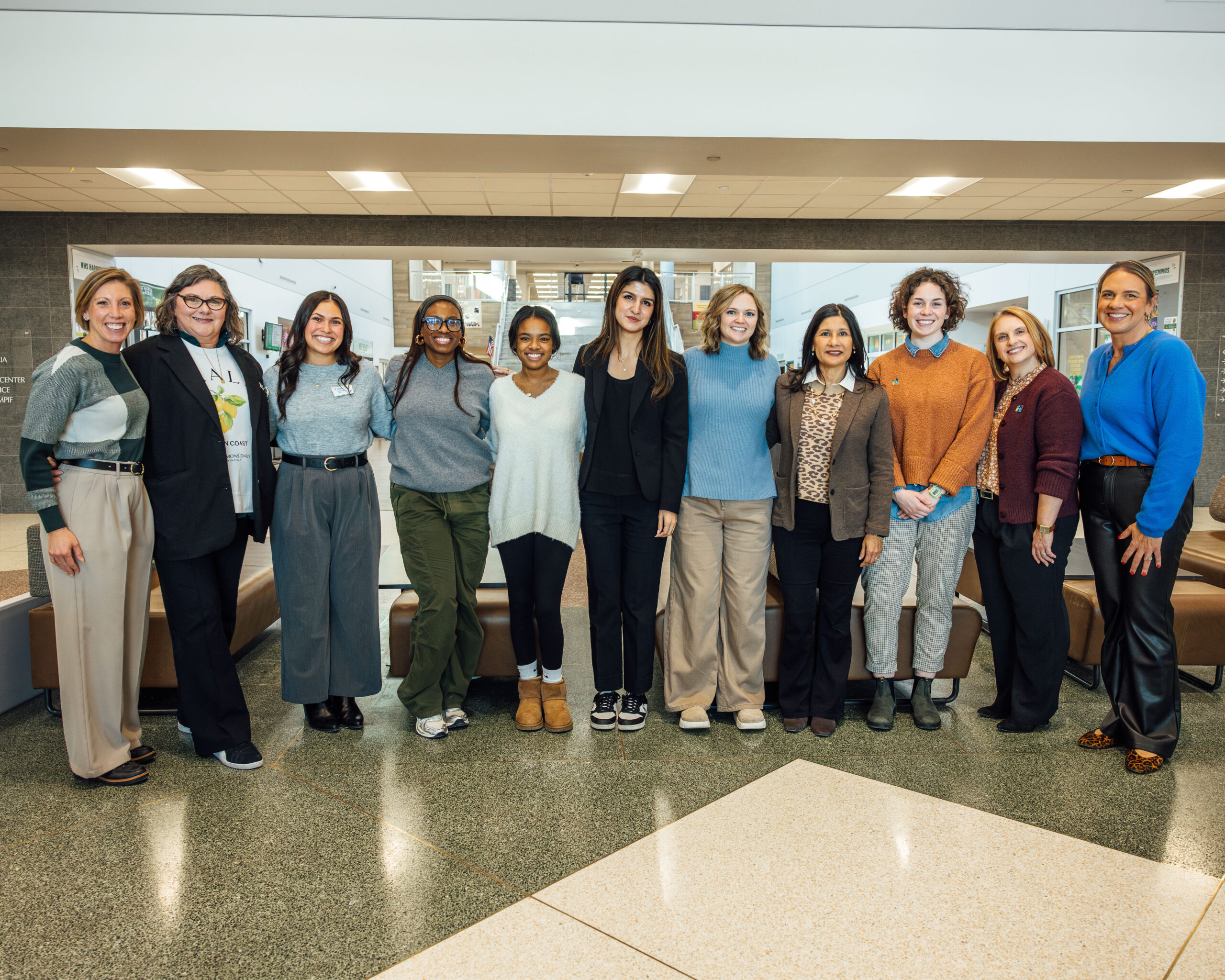Elks Partner with CICF to Ensure Lifelong Impact on Cancer Treatment
Indiana Elks have been raising money for cancer research in the state since 1948. And that has worked out exceedingly well – the Elks have given more than $11 million to support research at Indiana and Purdue universities, which has led to new treatments like Pluvicto for prostate cancer and launched the careers of numerous cancer researchers.
But the Elks wanted to do more. They wanted to be able to raise more money faster,
attract more planned gifts and have a long-term, sustainable fund that will continue to provide money in perpetuity for cancer research.
They turned to CICF to help them achieve those goals.

Elks Partner with CICF to Ensure Lifelong Impact on Cancer Treatment
Indiana Elks have been raising money for cancer research in the state since 1948. And that has worked out exceedingly well – the Elks have given more than $11 million to support research at Indiana and Purdue universities, which has led to new treatments like Pluvicto for prostate cancer and launched the careers of numerous cancer researchers.
But the Elks wanted to do more. They wanted to be able to raise more money faster, attract more planned gifts and have a long-term, sustainable fund that will continue to provide money in perpetuity for cancer research.
They turned to CICF to help them achieve those goals.
“Right now, we are giving approximately $175,000 to each university – about $350,000 a year for research out of what our 53 lodges raise,” said Don Raderstorf, Vice-Chairman for Indiana Elks Charities Inc., the Elks’ fundraising arm.
“We want to get to the point where 4 or 5 percent coming out of the endowment will be $350,000, which we’re hoping it will be in 10 to 20 years. Then we’re going to put the two together – the annual fundraising and the endowment – and everything our lodge raises for cancer research will go to the endowment, and the endowment will grow at a much faster pace.”
This spring, the Elks established the Indiana Elks Charitable Endowment, a fund of the Central Indiana Community Foundation, to support cancer research in Indiana.
CICF Director of Giving Strategies Clark Collier said that when the Foundation met with the Elks’ leadership to listen to their goals, they found that several Elks members were interested in leaving gifts to the fund in their estate plan.
“They wanted to ensure that they could not only meet the needs of their members who wanted to be charitable, but also that funds would be available so that this legacy – this cancer research project – could continue on into the future,” Collier said. “We determined that the best charitable vehicle to accomplish their goals would be a permanent endowment fund.”
A permanent endowment fund allows greater financial flexibility so an organization can count on a distribution from its endowment for either a special project or in times of need.
“This was an opportunity for an organization that is volunteer-led to partner with an organization like the Community Foundation to really help them professionalize their investment portfolio, to have access to expertise in fundraising and charitable giving,”
Collier said. “In the Elks’ case, it’s ensuring that the cause they care about and that they’ve invested their time and resources into over the years can continue to be
supported, even in perpetuity.”
Raderstorf said the Elks established a permanent endowment fund with CICF using $300,000 from their existing reserve fund. Now, the Elks are working with CICF to ramp up their fundraising efforts and explain to members what the endowment will do for their organization.
The idea of an endowment can seem intimidating, Collier said. But an endowment just means dollars that are held and invested and grown over time. The principal is never touched, which allows ongoing, consistent dollars to be available to support the organization’s mission.
CICF manages endowment funds for over 220 organizations, ranging in size from $25,000 to multiple millions. “Working with CICF goes beyond investment returns,” Collier said. “Strong investment performance is part of our service offering, and that’s part of what makes our business model work. But strong investment returns are table stakes. It’s the wraparound services and supports that our staff can provide – fundraising, marketing, finance, support and counsel – that uniquely sets us apart.”
The Elks’ creation of a permanent endowment is great news for the Indiana University Melvin and Bren Simon Comprehensive Cancer Center and the Purdue University Institute for Cancer Research, the beneficiaries of the Elks’ fundraising.
The two organizations put together a brochure for the Elks’ June 6 state convention that spotlights the importance of the Elks’ efforts. Among the highlights:
- Continued support has directly contributed to new technologies, patented discoveries, and advancements in cancer medicines that are improving lives and shaping the future of oncology.
- Giant leaps in cancer research are being made that benefit communities within Indiana, across the country and around the world, including funding to help develop a promising new cancer drug like Pluvicto, or support to develop early-detection techniques for breast cancer.
- Funds have created a state-of-the-art environment for training and education, as well as directly supporting student researchers who are becoming tomorrow’s top cancer scientists.
- At the IU Simon Comprehensive Cancer Center, the Elks’ funds not only provide a foundation for cancer research and care, but they also support courting top talent, pursuing research priorities, and launching innovative clinical trials. The Indiana Elks Young Investigators Research Endowment at IU supports young cancer researchers in launching their careers.
- The Elks have also supported fellow trainees in the IU School of Medicine Division of Hematology/Oncology. These fellows are medical doctors in their final three years of training to specialize in treating cancer. Elks funding has helped grow the careers of these young physician-scientists by making it possible for them to attend key conferences focused on their specific area of cancer research, hold memberships in important national organizations and submit their research to various organizations for presentations.
- At both IU and Purdue, the Indiana Elks’ contributions provide seed grants that launch leading-edge projects in cancer prevention, detection and treatment.
“The Indiana Elks have been a terrific partner,” said Brandt Patz, Senior Development Officer at Purdue’s Institute for Cancer Research. “Their outreach into the community –what the community cares most about in cancer research and what really impacts them– has been an integral part of our mission.”
“We’re so grateful to them,” said Meghan Forestal, Director of Development for the IU Simon Comprehensive Center. “We feel like it’s a true partnership, that we have a friend in the Elks and the Elks have a friend in us. It’s nice to know that they are in their communities advocating for us and for the work that’s being done.”
Related Stories

